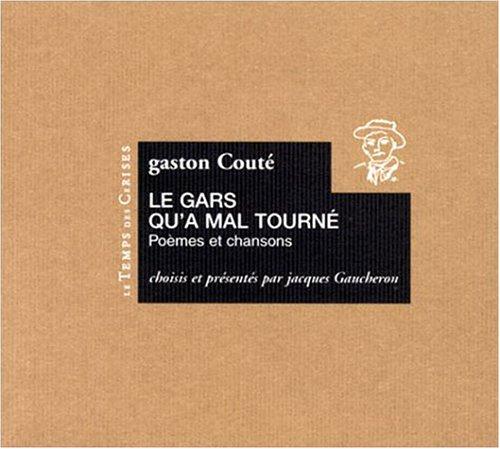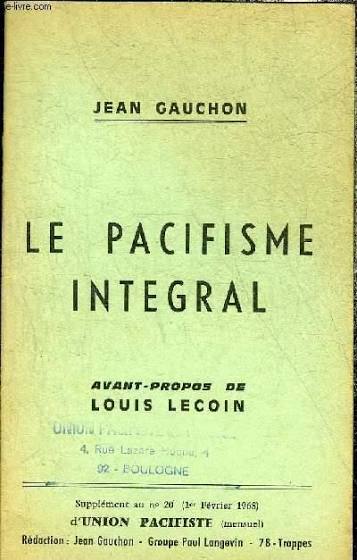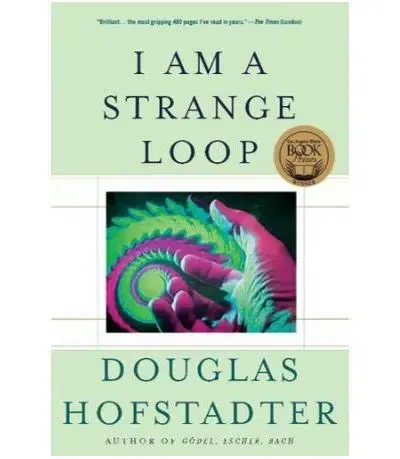Trois parties, trois générations de français·es d'origine algérienne. Le grand père harki qui fuit l'Algérie en 62, le père qui a vécu enfant la fuite et les camps de reclassement en France et ne veut plus entendre parler de l'Algérie, et la fille à la recherche de ses racines. Trois personnages peut-être un peu clichéiques mais auxquels le récit donne une vraie profondeur psychologique, me permettant à moi qui n'ai jamais vécu rien d'approchant de ressentir ce qui se joue dans ces situations. En revanche, je regrette un peu le côté trop didactique du livre (p.ex. le héros qui fait un aller retour à Alger sans raison et se retrouve juste devant l'attentat du Milk-bar) et le narrateur omniscient et un peu mansplainer sur les bord.
Reviews and Comments
I am a CNRS researcher in audition and psycholinguistics (dbao.leo-varnet.fr/about-me/). You can find me on Mastodon at fediscience.org/@LeoVarnet
This link opens in a pop-up window
Léo Varnet reviewed L'Art de perdre by Alice Zeniter
Le "rapatriement" des harkis sur trois générations
3 stars
Trois parties, trois générations de français·es d'origine algérienne. Le grand père harki qui fuit l'Algérie en 62, le père qui a vécu enfant la fuite et les camps de reclassement en France et ne veut plus entendre parler de l'Algérie, et la fille à la recherche de ses racines. Trois personnages peut-être un peu clichéiques mais auxquels le récit donne une vraie profondeur psychologique, me permettant à moi qui n'ai jamais vécu rien d'approchant de ressentir ce qui se joue dans ces situations. En revanche, je regrette un peu le côté trop didactique du livre (p.ex. le héros qui fait un aller retour à Alger sans raison et se retrouve juste devant l'attentat du Milk-bar) et le narrateur omniscient et un peu mansplainer sur les bord.
Léo Varnet rated Le choeur des femmes: 5 stars
Léo Varnet commented on Le pacifisme intégral by jean gauchon
Si vis pacem para pacem
Cela faisait longtemps que j'étais curieux d'en savoir plus sur les positions de l'union pacifiste, je suis content d'avoir pu lire cette petite brochure rédigée par l'un de ces anciens président, Jean Gauchon. Même si le format très court ne laisse pas vraiment de place à une argumentation détaillée, les mots d'ordre du pacifisme intégral sont là : 1. jamais de guerre pour quelque raison que ce soit, et 2. démilitarisation totale et immédiate -- même si celle-ci doit être unilatérale. L'ouvrage répond assez justement à la critique instinctive "Oui mais quand même si le pays est attaqué il faut bien pouvoir se defendre" en pointant que dans le monde moderne les guerres sont presque toujours présentées comme des guerres de défense, sans quoi elles ne seraient pas acceptées par la population.
Si vis pacem para pacem
Cela faisait longtemps que j'étais curieux d'en savoir plus sur les positions de l'union pacifiste, je suis content d'avoir pu lire cette petite brochure rédigée par l'un de ces anciens président, Jean Gauchon. Même si le format très court ne laisse pas vraiment de place à une argumentation détaillée, les mots d'ordre du pacifisme intégral sont là : 1. jamais de guerre pour quelque raison que ce soit, et 2. démilitarisation totale et immédiate -- même si celle-ci doit être unilatérale. L'ouvrage répond assez justement à la critique instinctive "Oui mais quand même si le pays est attaqué il faut bien pouvoir se defendre" en pointant que dans le monde moderne les guerres sont presque toujours présentées comme des guerres de défense, sans quoi elles ne seraient pas acceptées par la population.
Léo Varnet reviewed Le pacifisme intégral by jean gauchon
Si vis pacem para pacem
5 stars
Cela faisait longtemps que j'étais curieux d'en savoir plus sur les positions de l'union pacifiste, je suis content d'avoir pu lire cette petite brochure rédigée par l'un de ces anciens président, Jean Gauchon. Même si le format très court ne laisse pas vraiment de place à une argumentation détaillée, les mots d'ordre du pacifisme intégral sont là : 1. jamais de guerre pour quelque raison que ce soit, et 2. démilitarisation totale et immédiate -- même si celle-ci doit être unilatérale. L'ouvrage répond assez justement à la critique instinctive "Oui mais quand même si le pays est attaqué il faut bien pouvoir se defendre" en pointant que dans le monde moderne les guerres sont presque toujours présentées comme des guerres de défense, sans quoi elles ne seraient pas acceptées par la population.
Cela faisait longtemps que j'étais curieux d'en savoir plus sur les positions de l'union pacifiste, je suis content d'avoir pu lire cette petite brochure rédigée par l'un de ces anciens président, Jean Gauchon. Même si le format très court ne laisse pas vraiment de place à une argumentation détaillée, les mots d'ordre du pacifisme intégral sont là : 1. jamais de guerre pour quelque raison que ce soit, et 2. démilitarisation totale et immédiate -- même si celle-ci doit être unilatérale. L'ouvrage répond assez justement à la critique instinctive "Oui mais quand même si le pays est attaqué il faut bien pouvoir se defendre" en pointant que dans le monde moderne les guerres sont presque toujours présentées comme des guerres de défense, sans quoi elles ne seraient pas acceptées par la population.
Léo Varnet rated Human and Machine Hearing: 4 stars
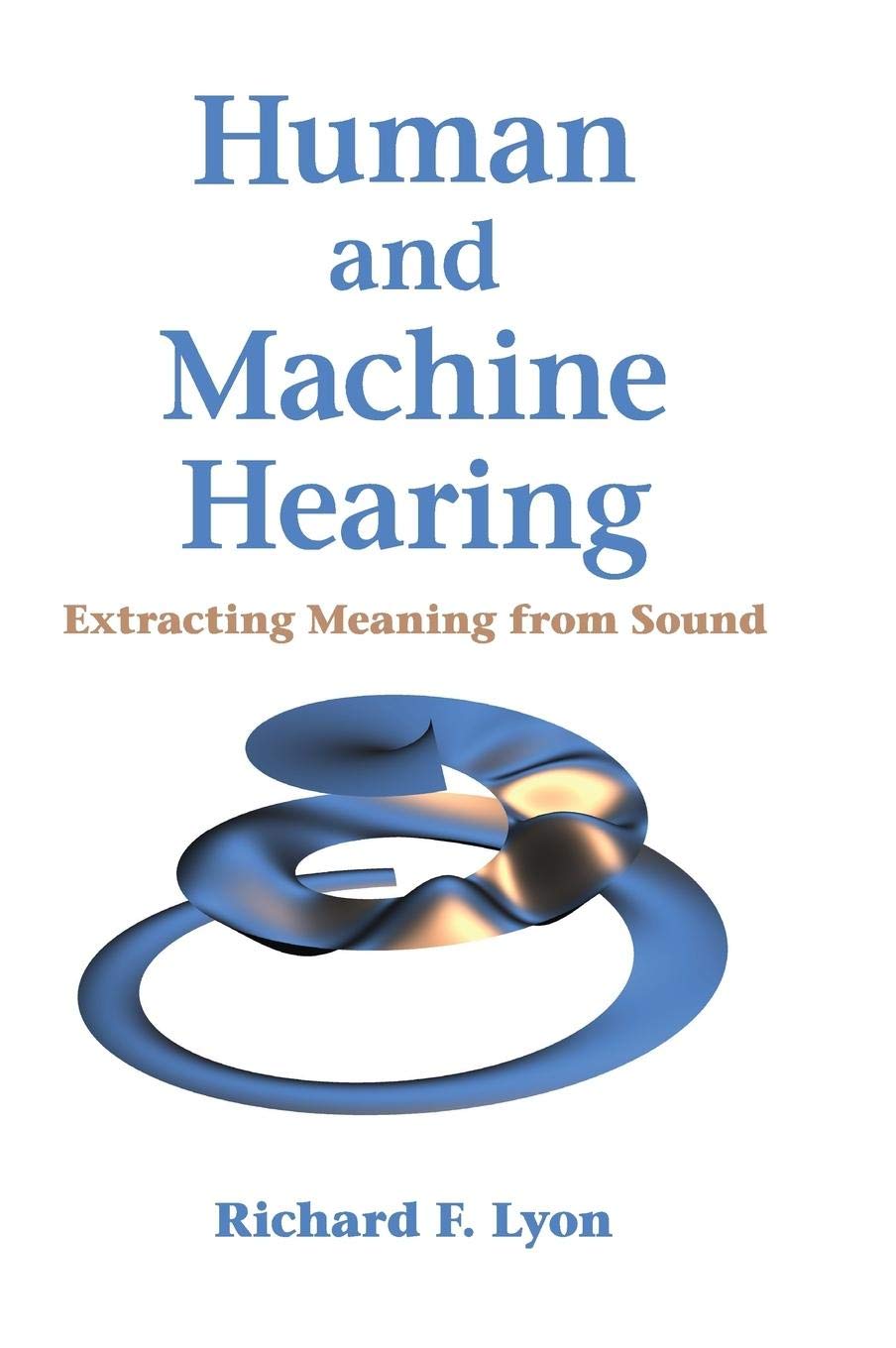
Human and Machine Hearing by Richard Francis Lyon
Human and Machine Hearing is the first book to comprehensively describe how human hearing works and how to build machines …
Léo Varnet rated Manuscrit trouvé à Saragosse: 5 stars

Manuscrit trouvé à Saragosse by Jan Potocki
La version de 1810.
En 2002, Dominique Triaire et François Rosset, deux chercheurs lancés sur les traces de l’excentrique …
Léo Varnet rated Novum organum: 5 stars
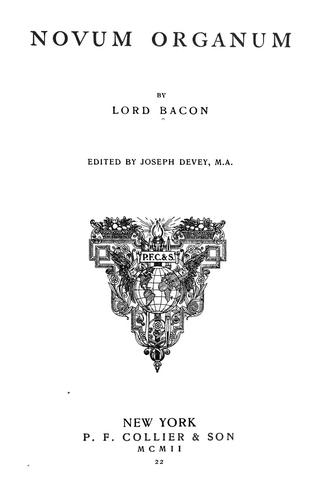
Novum organum by Francis Bacon ([Library of universal literature : pt. 1,] Science -- v. 22)
Léo Varnet reviewed Novum organum by Francis Bacon ([Library of universal literature : pt. 1,] Science -- v. 22)
Bacon’s user manual for science
Contrary to my expectations, much of Novum Organum turned out to be surprisingly accessible and enjoyable to read, despite the occasionally "archaic" scientific language and examples. Bacon opens with a sharp critique of the scientific practices of his time: an overreliance on Aristotelian authority, a neglect of empirical observation and experimentation, and -- above all -- a profound absence of a structured method. What’s striking is how modern many of his insights feel. He anticipates concepts we now frame as HARKing, cognitive biases, and even the file drawer problem. It's genuinely impressive to see that Bacon identified these issues as early as 1620. The second part of the book outlines Bacon’s proposed remedy: a new scientific method. Here, the text is admittedly less compelling. His solution consists largely of systematically collecting observations and drawing inferences from them in a methodic way. While this approach may seem underwhelming today, it's interesting …
Contrary to my expectations, much of Novum Organum turned out to be surprisingly accessible and enjoyable to read, despite the occasionally "archaic" scientific language and examples. Bacon opens with a sharp critique of the scientific practices of his time: an overreliance on Aristotelian authority, a neglect of empirical observation and experimentation, and -- above all -- a profound absence of a structured method. What’s striking is how modern many of his insights feel. He anticipates concepts we now frame as HARKing, cognitive biases, and even the file drawer problem. It's genuinely impressive to see that Bacon identified these issues as early as 1620. The second part of the book outlines Bacon’s proposed remedy: a new scientific method. Here, the text is admittedly less compelling. His solution consists largely of systematically collecting observations and drawing inferences from them in a methodic way. While this approach may seem underwhelming today, it's interesting to see Bacon's rigor and methodical reasoning.
Léo Varnet reviewed I Am a Strange Loop by Douglas R. Hofstadter
Lost in the loop
3 stars
I discovered the writings of Douglas Hofstadter three or four years ago, when I started reading his most famous work: Gödel, Escher, Bach. I found it both refreshing and very messy. There were some wonderful analogies like the brain as an ant colony that really stuck with me, but overall, the structure and argument were so convoluted that, by the end, I had to admit I wasn’t sure what the book was really about or what its main thesis was. The self-referential style, with chapters reflecting the concepts they describe was definitely funny but it certainly didn’t help my understanding.
Over the years, I’ve read most of Hofstadter’s books with great pleasure, and recently I decided to take on I Am a Strange Loop. In the preface, Hofstadter explains that his goal was to revisit the ideas of Gödel, Escher, Bach in a more straightforward way, because …
I discovered the writings of Douglas Hofstadter three or four years ago, when I started reading his most famous work: Gödel, Escher, Bach. I found it both refreshing and very messy. There were some wonderful analogies like the brain as an ant colony that really stuck with me, but overall, the structure and argument were so convoluted that, by the end, I had to admit I wasn’t sure what the book was really about or what its main thesis was. The self-referential style, with chapters reflecting the concepts they describe was definitely funny but it certainly didn’t help my understanding.
Over the years, I’ve read most of Hofstadter’s books with great pleasure, and recently I decided to take on I Am a Strange Loop. In the preface, Hofstadter explains that his goal was to revisit the ideas of Gödel, Escher, Bach in a more straightforward way, because many readers had apparently missed the main point about the nature of consciousness. That sounded promising: I was ready for the clarity I had been missing!
Unfortunately, Hofstadter seems unwilling to let go of his usual style. Once again, the book is full of analogies, digressions, and personal anecdotes. What could probably be a 15-page essay ends up stretching across nearly 600 pages. Along the way, we learn how and why he became a vegetarian, his experiments with video feedback loops, how he coped with the grief of losing his wife, and of course, detailed explorations of Gödel’s incompleteness theorems. All of this is interesting and somehow loosely related to his point, but it makes the book feel sprawling and unfocused.
So once again, I enjoyed I am a strange loop, although I skimmed through some chapters, but I’m now more convinced than ever that Hofstadter’s theory of consciousness is essentially just a strong intuition. There’s no data, no evidence, only analogies. This becomes especially clear in the contrast between the rigor of Gödel’s proof and the vagueness of Hofstadter's claim, which boils down to something like: “Gödel-like recursion in the mind should give rise to consciousness.” It’s a beautiful idea, but it lacks precision. So while I keep finding Hofstadter’s intellectual creativity admirable, as his work occupies a special place between science, philosophy and art, I'm still looking for a clear definition of the concept of "strange loop".
Léo Varnet reviewed Babel 17 by Samuel R. Delany
Un classique de la linguistique-fiction
Un grand classique de la linguistique-fiction (cf. l'ouvrage "Comment parler à un alien"), qui s'appuie sur la fameuse hypothèse sapir-whorf selon laquelle le language façonne la pensée et la perception du monde. Cette idée est un peu galvaudée, on la retrouve notamment dans "L'histoire de ta vie" de Ted Chiang, ou dans "L'enchâssement" de Ian Watson, mais il faut rappeler que le roman date de 1966. Delany pointe d'ailleurs lui-même les limites de sapir-whorf : notamment le fait que, quelque soit la langue, il est possible d'exprimer toute idée en utilisant une périphrase plus ou moins longue. Selon notre langue, l'accès à certains concepts nous est donc facilité, mais aucun ne nous est interdit. Fait notable : on doit la traduction française à Mimi Perrin la célèbre chanteuse des Double Six, qui eut ensuite une seconde carrière en tant que traductrice, notamment de SF.
Un grand classique de la linguistique-fiction (cf. l'ouvrage "Comment parler à un alien"), qui s'appuie sur la fameuse hypothèse sapir-whorf selon laquelle le language façonne la pensée et la perception du monde. Cette idée est un peu galvaudée, on la retrouve notamment dans "L'histoire de ta vie" de Ted Chiang, ou dans "L'enchâssement" de Ian Watson, mais il faut rappeler que le roman date de 1966. Delany pointe d'ailleurs lui-même les limites de sapir-whorf : notamment le fait que, quelque soit la langue, il est possible d'exprimer toute idée en utilisant une périphrase plus ou moins longue. Selon notre langue, l'accès à certains concepts nous est donc facilité, mais aucun ne nous est interdit. Fait notable : on doit la traduction française à Mimi Perrin la célèbre chanteuse des Double Six, qui eut ensuite une seconde carrière en tant que traductrice, notamment de SF.
Léo Varnet rated Babel 17: 4 stars
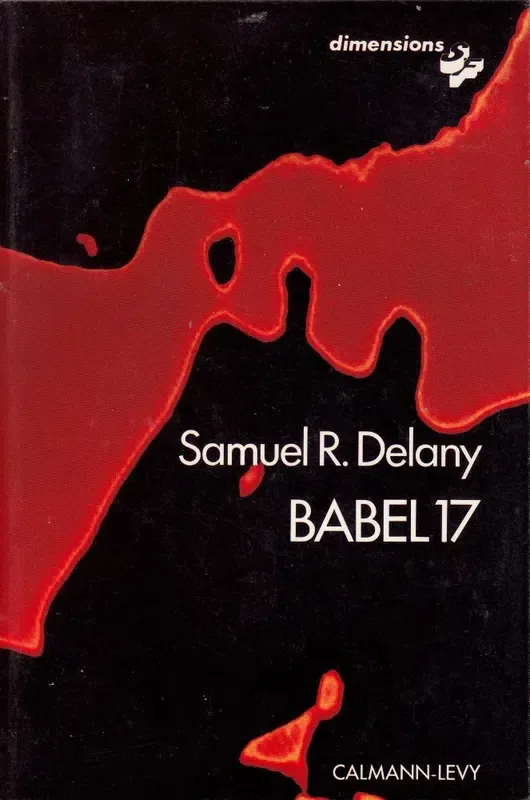
Babel 17 by Samuel R. Delany
Le langage comme arme absolue ? C'est l'hypothèse qu'examine Samuel R. Delany dans cet étonnant roman. Depuis plusieurs mois, la …
Léo Varnet rated Permutation City: 4 stars

Permutation City by Greg Egan
The story of a man with a vision - immortality : for those who can afford it is found in …
Léo Varnet reviewed Doing Meta-Analysis with R by Mathias Harrer
A good practical introduction to meta-analysis
4 stars
I didn't knew much about meta-analysis and I learned a lot in this book. But I also realize now that I'm trying to apply this knowledge to a concrete case that I miss some bit of information (in particular: what to do when the results are not reported as a simple t-test or a correlation?). A good entrance point nevertheless!
I didn't knew much about meta-analysis and I learned a lot in this book. But I also realize now that I'm trying to apply this knowledge to a concrete case that I miss some bit of information (in particular: what to do when the results are not reported as a simple t-test or a correlation?). A good entrance point nevertheless!
Cavanna dans un style pompier
2 stars
L'idée était excellente : revisiter l'Histoire de France à travers les tableaux des peintres pompiers en remettant en question notre beau roman national. Malheureusement, n'est pas historien qui veut. Cavanna a beau user de son style truculent pour ironiser sur la violence des grandes campagnes de conquête de César, Clovis ou Charlemagne, il n'échappe pas aux grands poncifs de l'histoire de France : une vision centrée sur des grandes figures héroïques comme Vercingétorix, une explication psychologisante (les Gaulois étaient condamnés à l'échec car trop vantards et individualistes), et une tendance à assimiler tous les envahisseurs, huns ou arabes, à des barbares. La lecture est au final très étrange car il est souvent difficile de dire où s'arrête le second degré, mais l'histoire qui nous est contée est finalement furieusement proche de celle des tableaux pompiers qui l'illustrent.
L'idée était excellente : revisiter l'Histoire de France à travers les tableaux des peintres pompiers en remettant en question notre beau roman national. Malheureusement, n'est pas historien qui veut. Cavanna a beau user de son style truculent pour ironiser sur la violence des grandes campagnes de conquête de César, Clovis ou Charlemagne, il n'échappe pas aux grands poncifs de l'histoire de France : une vision centrée sur des grandes figures héroïques comme Vercingétorix, une explication psychologisante (les Gaulois étaient condamnés à l'échec car trop vantards et individualistes), et une tendance à assimiler tous les envahisseurs, huns ou arabes, à des barbares. La lecture est au final très étrange car il est souvent difficile de dire où s'arrête le second degré, mais l'histoire qui nous est contée est finalement furieusement proche de celle des tableaux pompiers qui l'illustrent.

